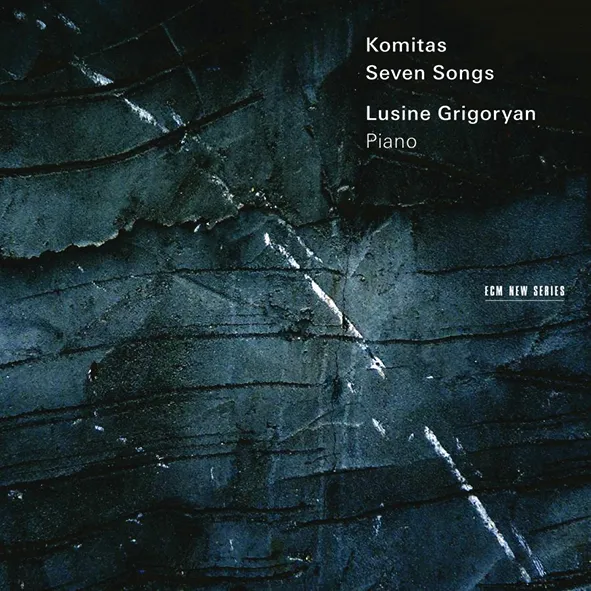
Komitas Seven Songs; Msho Shoror; Seven Dances; Pieces for Children; Toghik Lusine Grigoryan (piano) ECM 481 2556
Very few great composers had so tragic a life, or left behind such a tiny oeuvre, but Komitas (1869-1935) goes on making waves. This latest Komitas album was recorded during the same sessions as the CD by Levon Eskenian and the Gurdjieff Ensemble two years ago, and is a companion to it. Komitas arranged traditional Armenian songs and dances for piano, Eskenian rearranged them for the folk instruments on which Komitas would originally have heard them; now Eskenian’s wife Lusine Grigoryan performs them in Komitas’s original piano arrangements.
Piano music seldom comes so bare and unadorned: the usual recipe is a single-note melody in the right hand with a single-note accompaniment in the bass. But look at the dates of composition: the Seven Songs were composed in Constantinople in 1911, when Komitas and his Armenian compatriots were starting to feel the lash of anti-Christian prejudice; the Pieces for Children were mostly composed in 1915, as the Genocide which would destroy Komitas’s sanity was getting into gear. Behind these artless-seeming pieces lie intimations of terror to come, and also a remembered realm of rustic happiness.
The soundworld of a grand piano could not be further removed from village music making, but with judicious use of staccato and pedalling Lusine Grigoryan manages to suggest the original folk instruments: the duduk oboe, the zurna trumpet, the tar lute, and the daf drum. The tripping, swaying or sinuously-curving syncopated dance rhythms are charmingly evoked; the pervasive modal scale works its own demure magic. As Paul Griffiths observes in his liner note, this is a torn page waiting to be sewn back into music history.
Michael Church